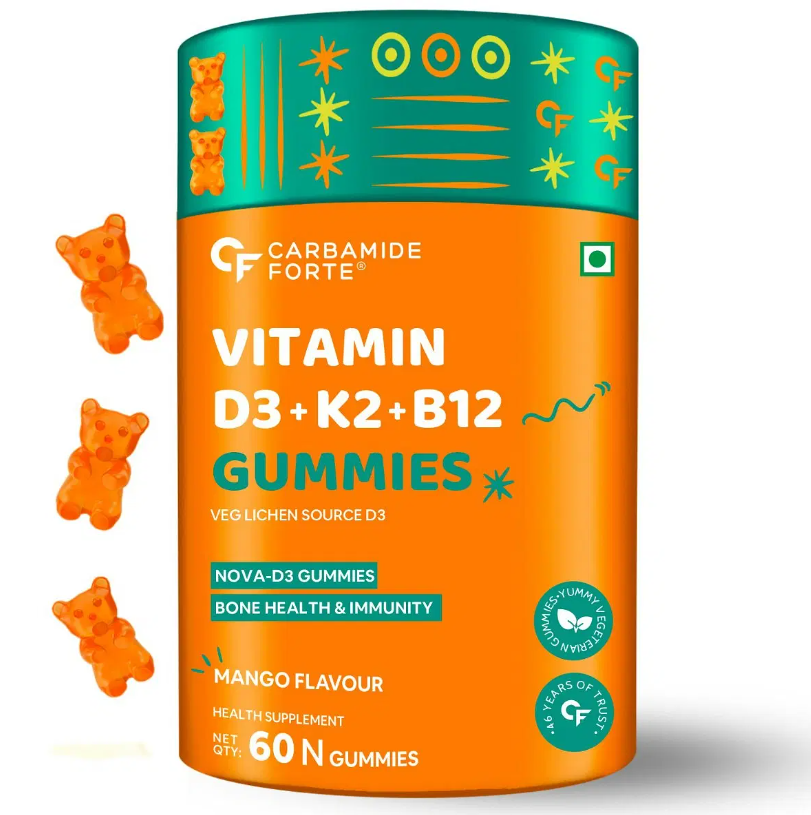There’s no doubt that a balanced diet is a good way to ensure your body gets the required daily nutrient intake. Unfortunately, it takes more than just food to make this happen for many. Here’s where multivitamins come in—they are an expert-approved, effective way to supplement your diet. But when deciding which ones to take, many common questions arise—should you be consuming multivitamins at all? What is the best time to take multivitamins? Does the timing impact the way your body absorbs the nutrients? We spoke to the experts to help clear any confusion.
Should you take a multivitamin?
There isn’t a specific age for one to start consuming multivitamins, explains nutritionist Suman Agarwal. “Anyone whose vitamin and mineral requirements are not met through regular food should consult their healthcare provider and consider starting a multivitamin regime,” she says.
Diving deeper, physician Dr Vishakha Shivdasani says that there are certain groups of people who need multivitamins to prevent deficiencies. “For example, pregnant women require folic acid and iron, women during menstruating years require iron, vegetarians are most often deficient in B12, older people might need calcium, and most of the population requires vitamin D.”
What should your multivitamins contain?
Agarwal explains that your multivitamins should include all B-complex vitamins, as modern living and cooking techniques often deplete these nutrients. She also suggests it should contain trace minerals like zinc, selenium, iron, and calcium, along with fat-soluble vitamins like A, D, and E. One can also benefit from antioxidants like lycopene and astaxanthin. “While it’s not necessary for multivitamins to contain large amounts of B12 and D3 since they are present in small amounts, it can still be beneficial to include them.”
When is the best time to take multivitamins?
Vitamin C: After breakfast (Note: due to drug regulations, vitamin C should be prescribed by your healthcare provider)
Omega-3 and Ubiquinol: After lunch. Taking Omega-3 with food may improve absorption and reduce side effects like burping or a fishy aftertaste.
Iron: Best absorbed on an empty stomach, at least one hour before a meal or two hours after. However, iron can irritate the stomach, so taking it with food might be better for some people.
B-Complex: Make sure to consume it in the first half of the day. According to Dr Shivdasani, it can cause insomnia for some people if taken in the second half.
Calcium: Best absorbed with food, particularly food rich in vitamin D which aids calcium absorption. Agarwal recommends having it along with a glass of buttermilk.
Magnesium: Best taken 15 minutes before bedtime, for better sleep and relaxation.
The rule of thumb? Dr Shivdasani says that fat-soluble vitamins are best absorbed when taken with or without food, while water-soluble vitamins can be taken with or without food. “Some minerals such as iron, may be better absorbed on an empty stomach, while others, such as calcium may be better absorbed with food.”
Multivitamins that you should pair together
Iron & vitamin C: Vitamin C with iron enhances the latter’s absorption.
Calcium, Magnesium, vitamin D & K2: Works synergistically for bone health. “Most patients I see only take calcium or at best with D3,” adds Dr Shivdasani. “A combination of vitamin K2, magnesium, and vitamin D with calcium, ensures that calcium gets directed towards the bones instead of sitting in the arteries and causes calcium blockages.”
Multivitamins that you shouldn’t pair together
Zinc & Copper: While both are essential minerals, they compete for absorption. Taking high doses of zinc can interfere with copper absorption. “It's generally recommended to take them at different times of the day, with zinc in the morning and copper in the afternoon or evening. I see a fair number of women who take zinc indefinitely without copper which often results in hair fall,” she adds.
Iron & Calcium: Calcium can interfere with iron absorption.
Also read:
6 ways to keep your hair grease-free and healthy if you work out every day
5 ways to make your morning coffee a lot healthier for your body, according to a nutritionist
Does oiling hair really help make it grow faster, healthier and thicker?







